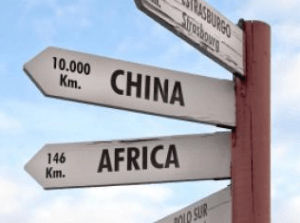China-Africa Cooperation symposium calls on African countries to strengthen collaboration
 Participants at the close of a symposium on the Forum on China-Africa Cooperation (FOCAC) initiative, in Accra, have called for strengthened collaboration among African countries for the sustainable development of the continent.
Participants at the close of a symposium on the Forum on China-Africa Cooperation (FOCAC) initiative, in Accra, have called for strengthened collaboration among African countries for the sustainable development of the continent.
The participants identified poor cohesion among African countries as a contributory factor to the underdevelopment of the continent and urged governments to draw lessons from China’s value addition through infrastructural initiatives to boost their development.
They argued that although Africa was endowed with numerous resources, the financing of major national infrastructural projects was often left in the hands of foreign nations, leading to high indebtedness to those countries, with very limited involvement of the local people in those developments.
They proposed among other things, that African leaders lead a unified crusade for domestic mobilisation of funding for the development of quality infrastructure, both within countries and across the continent, while ensuring a high level of accountability as a key pre-requisite for achieving success and maintaining the required standards of development.
The Participants also suggested that during the execution of such contracts, governments must ensure that majority of the labour (between 60 to 80 per cent) came from the local people, including African experts, so that those projects guarantee high economic benefits to the people and the nation at large.
The symposium, which was organised by the Institute for Economic Affairs (IEA) in partnership with the Chinese Embassy in Ghana, was on the theme: “FOCAC-A New Paradigm of Development Cooperation,” but focused on the topic: “FOCAC as a Vehicle for Infrastructural Development in Africa”.
It was joined in virtually and in-person by participants from diverse backgrounds including the political entities, the government, Parliament, academia, economists, civil society and the media, highlighted on China’s contributions to Africa’s development.
Dr Samuel Kwesi Darkwa, Director of Governance and Administration, IEA, said the FOCAC, was a platform established by China and friendly African countries for collective consultation and dialogue, and a mechanism between the developing countries which fall into the category of South-South cooperation.
Therefore, the programme provided a platform for dialogue on the best ways to deal with some of the challenges identified in awarding contracts for development projects both in Ghana and Africa, which included the lack of openness, accountability, involvement of indigenes, the poor skill of the people leading to low wages, and issues of technology transfer.
He said the outcome and suggestions made by participants would be collated and sent to the Government and Parliament for further discussion and adoption.
Mr Lu Kun, the Chinese Ambassador to Ghana, however, admitted that China had enjoyed good bilateral, political and international relations with Africa for many decades and continue to do so even in the era of the COVID-19 pandemic, with many achievements and continued investments in areas including healthcare infrastructure development, medical equipment and supply of Personal Protective Equipment (PPEs) and recently, vaccine support.
He also mentioned supports provided to Africa to achieve economic recovery, technical assistance to the African Union, and the dispatch of a medical team to augment the continent’s healthcare human resource needs during the outbreak of the COVID-19.
Mr Kun said China’s presence in Africa and Ghana had grown in the past 70 years, of which involving nations, had enjoyed good collaborations such as exchange programmes in political, social and education, and hoped to build upon these existing relations for a new journey of cooperation.
Mr Thomas Mbomba, the Deputy Minister of Foreign Affairs and Regional Integration described China’s relations with Ghana as strong, warm and cordial, evolving to cover areas such as diplomatic, political, economic, trade, investment, technology, security, cultural, education and people to people exchanges.
The two countries had also achieved a great number of bilateral and multilateral successes, and high-level visits and exchanges between Ghanaian and Chinese leaders have been frequent and fruitful, while trade relations had also seen a remarkable increase resulting in China being the largest trading partner of Ghana. Ghana is the seventh-largest trading partner of China in Africa.
Mr Mbomba said the FOCAC provided a unique diplomatic mechanism to promote dialogue between China and Africa, facilitating development in political and economic agenda, to the advancement of a South-South Cooperation of mutual benefits from both sides.
The FOCAC deliberations, he said, had brought Africa and Chinese leaders closer together to share visions on policy and common prosperity, leading to China’s progressive allocation of financing support including the $60 billion assistance announced at the FOCAC Summit in Beijing, with emphasis on Africa’s infrastructural development.
He said Chinese Government assistance towards infrastructural supply in energy generation, roads and building construction, water and sanitation among others, was visible across the country and thanked the Government and people of China for their continuous support towards Ghana’s development.
Mr Mbomba however urged China to introduce a COVID-19-related initiative, with priority towards healthcare and the rebuilding of the post-COVID-19 economies of Africa, including Ghana.
He indicated that Ghana would fully participate in the 2021 FOCAC Summit to be held later in Darkar, Senegal, as the COVID-19 pandemic had reinforced the need for collaborations to mitigate the negative socio-economic effects of the disease.
Source: GNA
